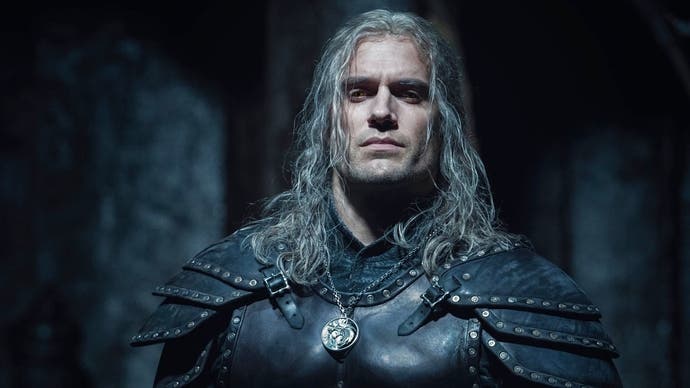Geralt of Rivia: A disabled protagonist
"I haven't stopped thinking about this thread."
"[Geralt] caught sight of Regis looking at him intently. 'Is that a fresh injury?'
"'Not really. But it's tormenting me. Do you have any herbs capable of soothing the pain?'"
- Baptism of Fire by A. Sapkowski, pp.128
Geralt of Rivia is disabled.
It's always interesting to see people's reaction to this statement - especially fans' - and I got one on Monday 9th November when a thread I made went viral on Twitter.
Geralt has become such a beloved fantasy icon, especially after the success of CDPR's The Witcher 3: Wild Hunt and Netflix's The Witcher, but whenever we think about him, our minds instantly go to the grizzled but lovable monster hunter from the video games. Now riding on the coattails of the award-winning TV show, I felt it was important to speak up about my personal experiences with Sapkowski's novels and to hopefully draw attention to what has been left behind over the years spent retelling Geralt's story.
I am disabled and work professionally as a disability consultant, sensitivity reader, writer and designer for tabletop roleplaying games and other media. I began showing symptoms at age 12, and my childhood was one of not 'fitting in', not being able to do things my friends could do. I grew up angry and alone, feeling like no one understood my chronic pain or cared about it. It wasn't until I was 20 that I came across Sapkowski's novels after seeing some friends play and talk about The Witcher 3, and I swiftly became an avid fan of both books and games.
When I reached Time of Contempt and Geralt took a grave injury, I unknowingly began my path to acceptance and peace. Though healed by the magical Waters of Brokilon Forest, Geralt complained of constant pains in his knee, hip, and elbow.
Suddenly, I was intrigued.
Unlike other fantasy novels, where the trope of magic erasing any ailment, injury, or disability is rampant, the healing Geralt received didn't negate or lessen his injury. It started to affect him long term and he had to learn to compensate and accommodate for his newfound disability. It took him time - he was angry and frustrated at himself and the world, and took it out on friends.
In that moment, I realised he was like me.
It was Geralt's long path to accepting his disability that helped me to accept mine. He was shown time and time again to be capable, strong, and to still have value as a person - all these things being unusual in disability representation I had interacted with before and still come across now. This isn't to say the books are perfect in their representation - the slur of 'cripple' is tossed around like nobody's business - but they perfectly captured and reflected my own experience; one of anger and internalised ableism.
When I made my thread, I knew full well that I was opening a can of worms. Disability is still largely unaccepted, not only in media but in society too, and for the most part I got the reaction I was expecting.
"Geralt isn't disabled."
"This kind of pandering needs to stop."
"Actually, Fringilla Vigo healed Geralt in Lady of the Lake so he isn't disabled." (A point I have already debunked on Twitter and explained that Geralt has canonical disabilities beyond his knee and elbow - ie. his sterilisation, severe mental trauma, poor toxicity tolerance from potion abuse, and nerve damage from other old wounds and scars. The word 'healed' is not to be conflated with the word 'cured'. They don't mean the same thing.)
All of a sudden, I was made out to be 'ruining' The Witcher for pointing out the disabilities Sapkowski wrote in and the videogames chose to largely ignore. I have had people mock me and state that 'disability wouldn't work in a videogame', yet fail to acknowledge Mad Max's game protagonist used a leg brace and walked with a limp. Disability only 'doesn't work' in media because in a field largely dominated by able-bodied people, no one cares to try or to hire disabled professionals who could work with them to make it 'work'.
Whilst I am overjoyed at Netflix-Witcher showrunner Lauren Hissrich's response, I am also extremely nervous. The film and TV industry doesn't have the best track record with disability representation - at worst, we are portrayed as villains, and at best we are seen as pitiable creatures rather than human beings. Though I have made my offer clear as a professional disability consultant (who is also currently working on R. Talsorian Games' The Witcher Pen & Paper) , I can't get my hopes up too high that they will employ one. Oftentimes, the industry tries to go it alone, thinking that disability is something 'easy' to represent and, as a result, we get a lot of ableism instead.
I do hope with all my heart that Netflix and The Witcher team reach out and employ a disabled consultant to assist in capturing such an important and sensitive part of Geralt's character. I have been mocked, ridiculed, and accused of being 'overly critical' and not 'a real fan'. But somewhere along the way people forgot what my thread was truly about: they saw me call Geralt disabled and came looking for excuses to take that part of his identity away again, like the video games did.
But it's important that we acknowledge Geralt as a disabled protagonist and stop erasing that part of him. We should be stepping up to represent and handle that part of his story correctly, explicitly, and sensitively. Because there are disabled folks out there, right now, who need to know that they're not alone in their pain and experiences. That they are still people with value and a life. They need positive representation.
They need someone like Geralt of Rivia.
